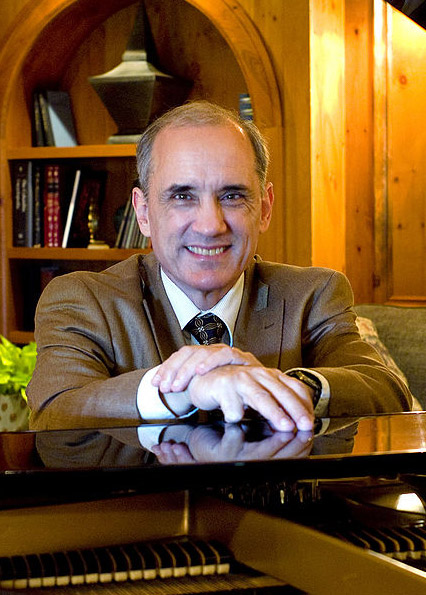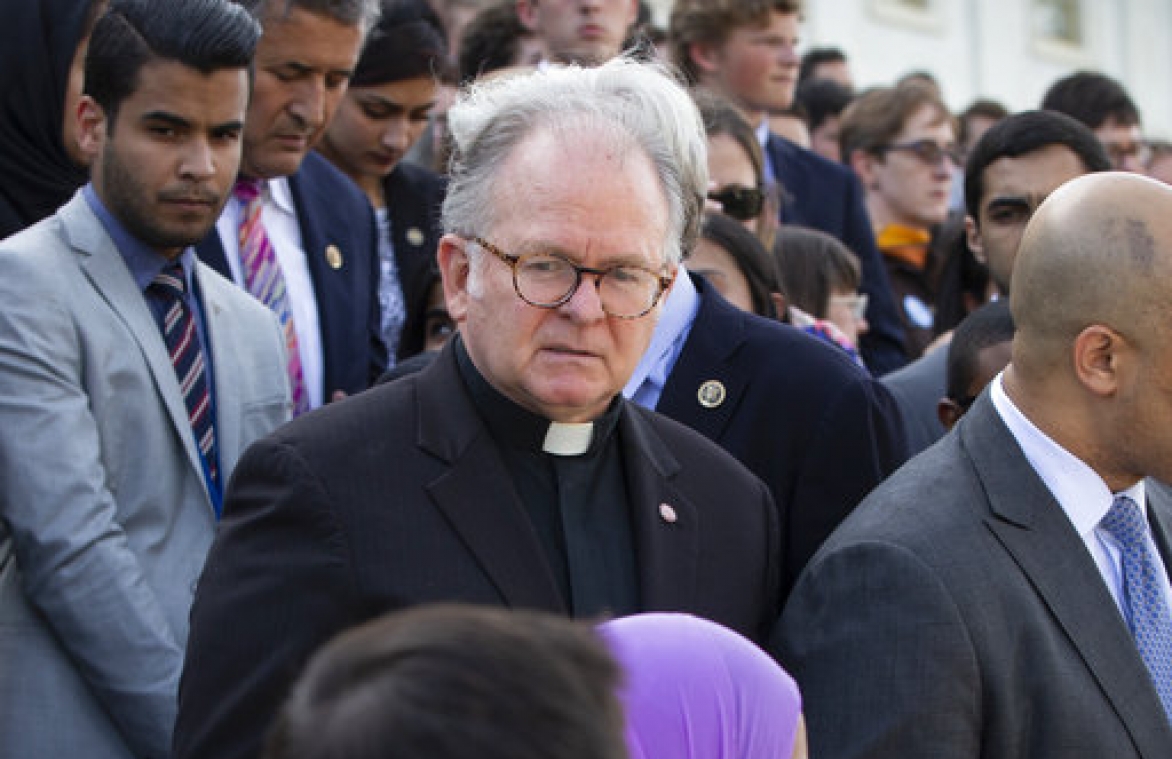The Chaplain for the U.S. House of Representatives did not violate the Establishment Clause when he barred an atheist from serving as guest chaplain, a three-judge panel of the U.S. Court of Appeals for the D.C. Circuit has ruled.
Since its founding in 1789, the U.S. House of Representatives has had chaplain-led prayer. The House rules provide that “[t]he Chaplain shall offer a prayer at the commencement of each day’s sitting of the House.”
The House’s Office of the Chaplain also approves of guest chaplains. The vast majority of guest chaplains approved have been Christian, though there have been guest chaplains who were Muslim, Jewish, and Hindu. However, the Office of the Chaplain had not approved of an atheist or agnostic to be guest chaplain.
Atheist seeks to deliver secular prayer as guest chaplain before House of Representatives
Daniel Barker, co-president of the Wisconsin-based Freedom From Religion Foundation, sought to deliver a secular prayer as guest chaplain before the U.S. House of Representatives. Barker had been ordained to the Christian ministry in the 1970s but later “lost faith in faith” and became an atheist.
The House Chaplain’s Office had three rules for someone attempting to serve as a guest chaplain: (1) the person must be sponsored by a member of the House; (2) the person must be ordained; and (3) the person must address “a higher power.”

Barker met the first two requirements. His congressional representative, Congressman Mark Pocan sponsored him. Furthermore, he was ordained in the 1970s. Barker also contended that he met the third requirement because he would address “the higher power” of human wisdom.
The Chaplain’s Office denied his request, noting that Barker “was ordained in a denomination in which he no longer practices.”
Barker sued the House Chaplain Patrick Conroy and others, including then House Speaker Paul Ryan, for violating the Establishment Clause. Barker contended that Conroy impermissibly discriminated against him because he was an atheist.
A federal district court dismissed the lawsuit, finding that Barker did not have standing – or a sufficient stake in the litigation – to proceed.
Circuit Court considers Supreme Court cases on legislative prayer
On appeal, a three-judge panel of the D.C. Circuit found that Barker had legal standing to file the lawsuit but ruled against him in its April 19, 2019, ruling in Barker v. Conroy.
The appeals court panel focused on the U.S. Supreme Court decisions in Marsh v. Chambers (1983) and Town of Greece v. Galloway (2014). In Marsh, the Supreme Court upheld by a vote of 6-3 the Nebraska legislature’s practice of chaplain-led prayer. In Galloway, the Court upheld by a vote of 5-4 a New York town’s practice of opening town hall meetings with prayer.
“Together Marsh and Town of Greece establish a two-step process for assessing the constitutionality of a particular legislative-prayer practice: identify the essential characteristics of the practice and then determine whether that practice falls within the tradition the Supreme Court has recognized as consistent with the Establishment Clause,” wrote Judge David S. Tatel for the panel.
Tatel reasoned that the two decisions establish the religious roots of legislative prayer. They indicate that legislative prayer can be religious and still be consistent with the Establishment Clause. He also noted that in neither decision did the U.S. Supreme Court indicate that a legislative body must extend its religious prayer practice to the non-religious or secular prayer.
For more information about the First Amendment and religious ceremonies by government, see these entries in The First Amendment Encyclopedia:
- Chaplains
- Prayer at Public Events
- Prayer at Public School Events
- Marsh v. Chambers
- Town of Greece v. Galloway
David L. Hudson Jr., an associate professor of Legal Practice at Belmont University College of Law, is a First Amendment attorney and author who has written, co-written or co-edited more than 40 books, including Let the Students Speak: A History of the Fight for Free Expression in American Schools (Beacon Press, 2011), The First Amendment: Freedom of Speech (Thomson Reuters, 2012) and Documents Decoded: Freedom of Speech (ABC-CLIO, 2017).

